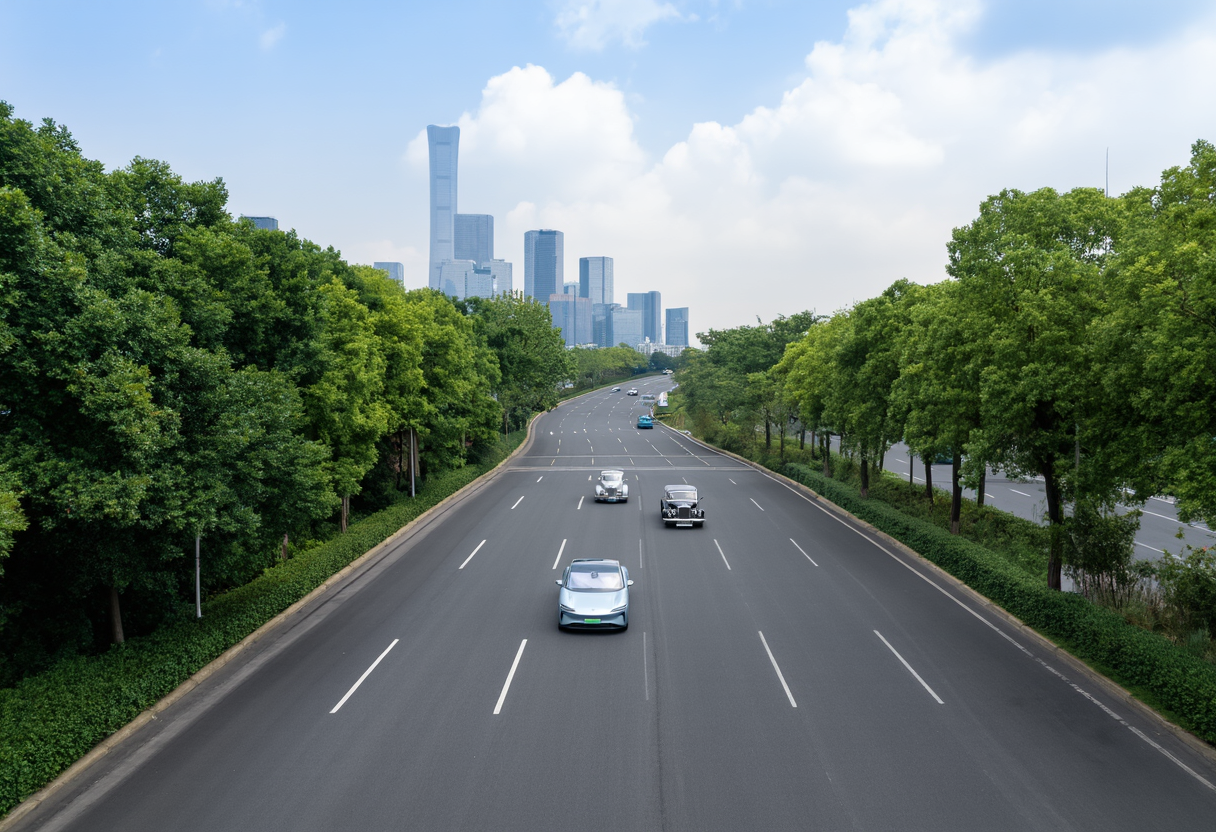The Evolution of Luxury Cars: A Look into Innovations and Trends!
The evolution of luxury cars is marked by technological advancements and changing consumer preferences. This article examines how luxury vehicles have transformed over the years, including innovations in design, performance, and sustainability. As the market adapts, luxury cars continue to redefine the driving experience, blending sophistication with functionality.
The Journey of Luxury Cars Through Time
Luxury cars have undergone remarkable transformations throughout their history, responding to shifts in technology and consumer expectations. From the opulence of early 20th-century models to the sleek designs of modern vehicles, luxury cars reflect societal changes and technological advancements. Initially, luxury cars were characterized by their extravagant features such as plush interiors and powerful engines. However, as technology evolved, so did the definition of luxury. Today’s luxury vehicles are not solely focused on aesthetics but also prioritize performance, safety, and connectivity. This shift has positioned luxury cars as icons of modern engineering and design, appealing to a broader demographic of consumers. The embrace of innovation has allowed luxury brands to stay competitive, fostering an environment where continuous improvement and adaptation are necessary. Indeed, the journey of luxury cars is a testament to the automotive industry's resilience and commitment to excellence.
Innovations That Shape Modern Luxury Cars
Technological innovation is at the heart of the evolution of luxury cars. Advanced materials like lightweight carbon fiber and aluminum not only enhance performance but also contribute to fuel efficiency. The integration of hybrid and electric powertrains marks a significant milestone in the luxury vehicle sector, responding to increasing environmental concerns. Brands such as Tesla lead the charge in revolutionizing luxury with fully electric models that redefine the driving experience. Furthermore, the incorporation of smart technologies, including autonomous driving capabilities and advanced infotainment systems, has transformed how consumers interact with their vehicles. These innovations not only elevate the driving experience but also introduce a level of convenience and safety previously unattainable. As luxury cars continue to advance, they challenge the traditional notions of power and speed, placing greater emphasis on efficiency and connectivity in an increasingly digital world.
Luxury Cars and Sustainability: A New Paradigm
Sustainability has become a pivotal concern for luxury car manufacturers as they strive to reduce their environmental impact. The move towards greener technologies involves rethinking production processes and exploring alternative materials for manufacturing. Innovations in battery technology for electric luxury cars are further improving range and performance, making sustainable options more attractive to consumers. Additionally, luxury brands are adopting circular economy principles, aiming to minimize waste and promote recycling within the production processes. This shift not only caters to eco-conscious consumers but also positions luxury brands as leaders in responsible manufacturing. Thus, the relationship between luxury cars and sustainability is evolving, marking a new era that emphasizes environmental stewardship alongside opulence. In this changing landscape, luxury car manufacturers are presented with opportunities to innovate for both profitability and sustainability.
The Social Impact of Luxury Car Ownership
The social implications of luxury car ownership extend beyond personal choice; they also influence perceptions and interactions in societal contexts. Owning a luxury car can affect an individual’s social status and self-image, often creating a hierarchy among different classes of vehicle ownership. This phenomenon underscores the connection between luxury cars and societal norms, shaping how consumers view themselves in relation to others. Additionally, luxury vehicles often serve as a focal point in social gatherings, symbolizing success and accomplishment. Whether it’s through car shows, reveal events, or informal social networks, luxury cars are frequently at the center of social interactions, fostering community among enthusiasts. However, the exclusivity of luxury car ownership can also lead to feelings of envy or rivalry, reflecting the complexities of status symbols in contemporary culture. Understanding these dynamics is essential for luxury brands aiming to engage effectively with their audience.
More than Just a Car: The Luxury Brand Experience
The experience of owning a luxury car transcends the vehicle itself; it encompasses the entire brand experience. From the moment a consumer enters a showroom to the customer service received after purchase, luxury car brands aim to create an unparalleled experience. High-end dealerships offer personalized services, test drives in picturesque settings, and exclusive events for owners. Furthermore, many luxury brands invest in loyalty programs and customer engagement initiatives, fostering connections that go beyond mere transactions. This commitment to customer experience is a defining characteristic of the luxury automotive market. As brands cultivate relationships with their customers, they enhance the emotional connection associated with luxury cars. Following from this, the evolution of luxury cars is not just about design and performance; it also involves the narrative that brands construct around ownership and experience.
Conclusion: The Future of Luxury Cars is Bright
As luxury cars continue to evolve, the future holds exciting possibilities that blend tradition with innovation. The automotive industry is witnessing a shift towards technologies that prioritize sustainability and connectivity, redefining what luxury means in this context. Modern consumers seek vehicles that align with their values, pushing luxury car manufacturers to adapt swiftly to changing preferences. The historical significance of luxury cars combined with emerging technologies ensures that they remain relevant in a competitive marketplace. Ultimately, the future of luxury cars will not only reflect individual desires but also broader societal trends, merging technological prowess with sustainable practices to create a new era of automotive excellence.
